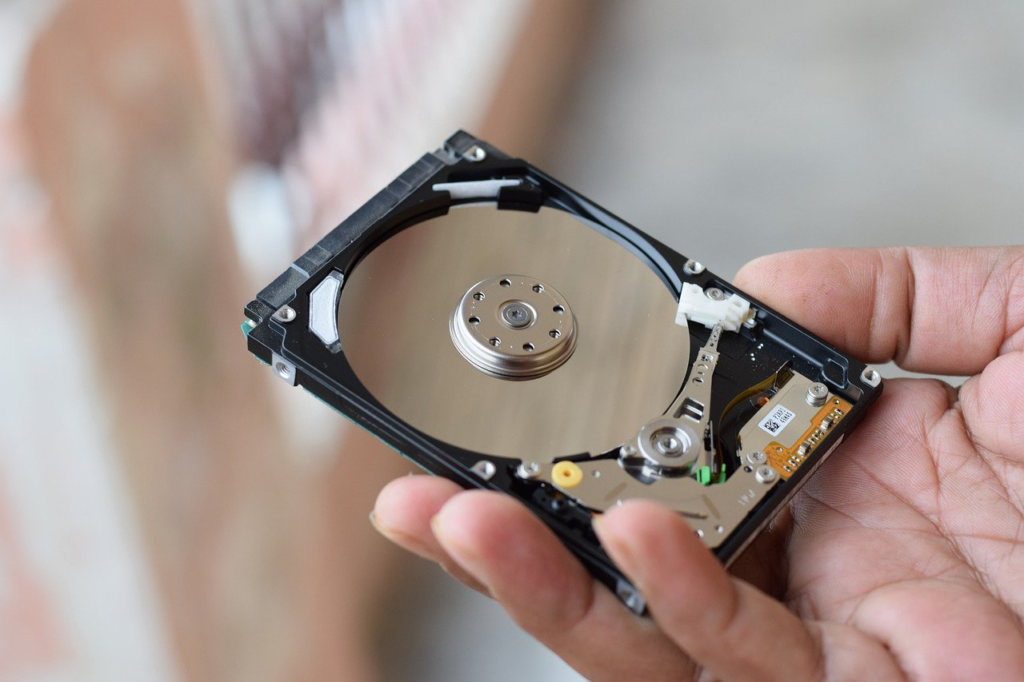What if we told you that artificial intelligence (AI) could redefine not just how we interact with technology, but also the very components that make up our computers? In today’s tech-driven world, computer hardware is experiencing a transformation powered by AI, making devices faster, smarter, and more efficient.
Did you know that the global AI hardware market is projected to reach $58.61 billion by 2028? This staggering growth reflects a critical need for advancements in hardware to support increasingly complex AI applications.
As we witness these shifts, it’s essential to understand how AI is reshaping computer hardware and what it means for us moving forward. AI Report Central brings you the latest insights, updates, and trends in artificial intelligence, keeping you informed on the innovations shaping tomorrow.
In this blog, we’ll cover the significant breakthroughs in AI computer hardware, the implications for device performance and energy efficiency, and what the future holds for the industry.
The Rise of AI Computer Hardware
The evolution of AI computer hardware is not just about speed; it’s about creating smarter, more efficient systems. This transformation has seen the emergence of specialized hardware designed to meet the demands of AI applications. Let’s look at some key advancements:
1. Cutting-Edge Processors
- Graphics Processing Units (GPUs):Originally designed for rendering graphics, GPUs are now the backbone of AI computations. Their parallel processing capabilities enable them to handle vast amounts of data efficiently, making them indispensable for training machine learning models.
- Tensor Processing Units (TPUs):Developed by Google, TPUs are specifically optimized for AI tasks. They significantly accelerate the performance of neural networks, providing organizations with the capability to process more data faster.
2. AI-Optimized Storage Solutions
- Solid State Drives (SSDs):As AI applications demand more storage, SSDs have become the preferred choice due to their speed and reliability. The use of AI algorithms in managing data storage ensures faster data retrieval and improved overall system performance.
- Memory Hierarchies:Innovations in memory technology, such as 3D NAND and non-volatile memory express (NVMe), are crucial for reducing latency and increasing throughput in AI workloads.
3. Energy Efficiency
- Low-Power Hardware:As AI becomes more integrated into daily applications, the need for energy-efficient solutions grows. Low-power hardware, such as ARM processors, enables devices to perform complex tasks without draining battery life, essential for mobile and IoT devices.
- Smart Cooling Systems:AI algorithms can optimize cooling systems in data centers, leading to reduced energy consumption and lower operational costs.
The Impact of AI on Computing Performance

AI is not merely augmenting existing hardware but is fundamentally altering how computers perform tasks. Here are some of the ways AI is enhancing computing performance:
1. Enhanced Data Processing
AI algorithms can process data in real-time, providing insights and analytics faster than ever before. This capability is crucial in industries like finance, healthcare, and autonomous vehicles, where decisions need to be made rapidly.
2. Improved User Experience
With the integration of AI, devices can learn from user behavior and adapt to individual preferences. This leads to a more personalized experience, whether in software applications or hardware configurations.
3. Advanced Machine Learning Capabilities
By leveraging AI-optimized hardware, businesses can implement more sophisticated machine learning models. These models require less time to train and can yield more accurate predictions, making them invaluable for decision-making processes.
What’s Next for AI Computer Hardware?
As we look ahead, the future of AI computer hardware promises to be exciting. Here are some trends we anticipate:
1. Neuromorphic Computing
Inspired by the human brain, neuromorphic computing aims to create hardware that mimics neural structures. This innovation could revolutionize AI, making systems more efficient and capable of learning in real-time.
2. Quantum Computing
While still in its infancy, quantum computing holds the potential to process information at unprecedented speeds. As AI algorithms are integrated with quantum technology, we could see breakthroughs in fields ranging from cryptography to materials science.
3. Edge Computing
As IoT devices proliferate, the need for edge computing will grow. This approach allows data to be processed closer to the source, reducing latency and bandwidth usage. AI will play a vital role in optimizing these systems for efficiency and performance.
Implementing AI in Small Businesses
For small businesses, leveraging AI computer hardware can lead to significant improvements in operations and competitiveness. Here are some actionable steps:
- Invest in AI-Optimized Hardware:Prioritize hardware that is specifically designed to support AI applications, such as GPUs and SSDs.
- Utilize Cloud Services:Many cloud providers offer AI services that can be accessed without the need for extensive hardware investments, making it easier for small businesses to implement AI
- Focus on Training and Support:Ensure that your team is well-trained to utilize new hardware and software effectively, maximizing the benefits of AI technologies.
Why It Matters

The advancements in AI computer hardware are not just a trend; they represent a fundamental shift in how we approach technology. By improving performance, enhancing user experiences, and enabling more efficient data processing, AI is paving the way for a smarter future.
As we witness these changes, we must stay informed about the latest updates in artificial intelligence and how they impact our lives. This knowledge will empower us to make informed decisions about our technology investments and strategies.
Is Your Business Ready for the Future of AI?
As the landscape of AI computer hardware continues to evolve, we must be proactive in adapting to these changes. Investing in the right hardware and solutions can give businesses a competitive edge. If you want to stay updated on the latest on artificial intelligence, consider subscribing to our newsletter at AI Report Central. We provide valuable insights and the latest updates in artificial intelligence, helping you navigate this ever-changing landscape.
In summary, the integration of AI in computer hardware is not just about enhancing current capabilities; it’s about rethinking how we approach technology in the future. By understanding these advancements, we can better prepare ourselves for the challenges and opportunities that lie ahead. Let’s embrace the potential of AI and shape a more efficient, intelligent future together.



















